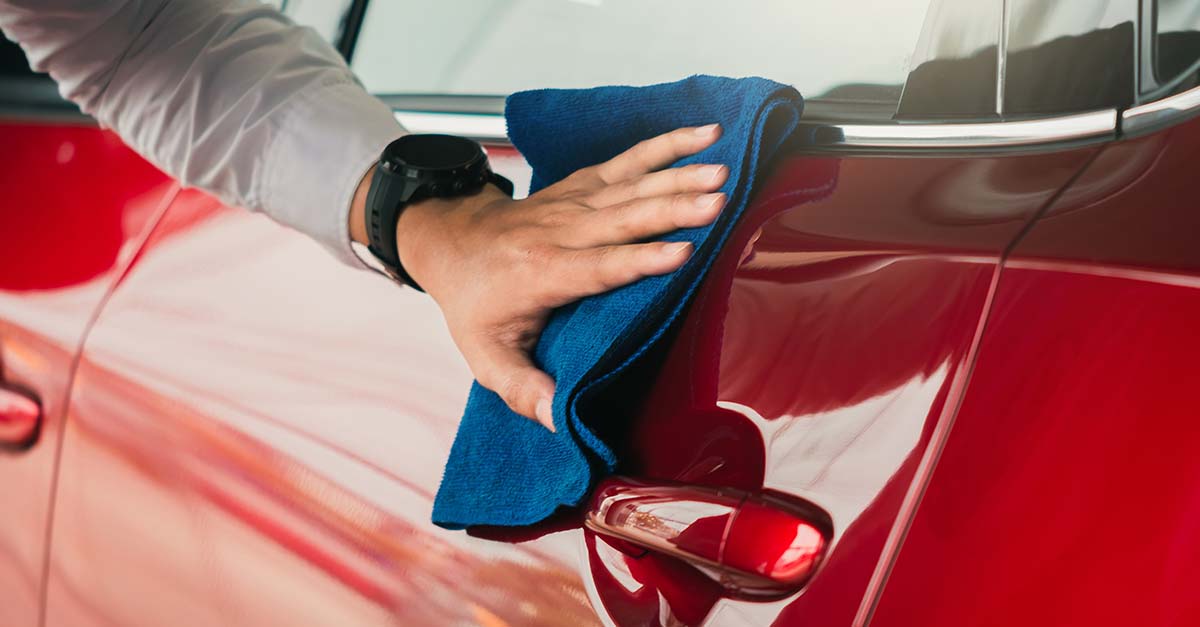Keeping your car in top condition goes beyond just maintaining its exterior appearance; it also involves caring for its interior. From preventing external damage due to environmental factors to ensuring a comfortable and hygienic driving experience, professional detailing plays a crucial role in keeping your vehicle in prime shape. Let's delve into why your car needs professional detailing and how it can benefit you.
1. Why professional detailing matters
Your car is subjected to various hazards, both externally and internally. Factors like acid rain and UV radiation pose threats to your car's exterior, making it vulnerable to damage. Thus, protecting your car's exterior is essential from the moment you purchase it, and this is where professional detailing comes into play.
2. What is interior car detailing?
Interior car detailing focuses on the cleanliness and appearance of your vehicle's interior. It goes beyond just superficial cleaning; it aims to create a fresh, sanitary, and comfortable environment inside your car. Interior detailing involves thorough cleaning to sanitize surfaces, remove dirt, and eliminate germs, ensuring a pleasant driving experience.
3. The purpose of professional car detailing
Professional car detailing aims to safeguard your vehicle's interior, preserving its appearance and ensuring it looks new for an extended period. It involves comprehensive cleaning and restoration processes that can make even a used car feel like it just rolled off the showroom floor.
4. The standard car detailing procedure
Interior car detailing typically includes vacuuming hard-to-reach spots, steam cleaning carpets and floor mats, cleaning glass and leather surfaces, and applying special products to clean windows and dashboards. This comprehensive process ensures a thorough and effective cleaning of your car's interior, leaving it fresh and sanitized.
5. Auto detailing vs. car wash
While both auto detailing and car washing are essential for maintaining your vehicle, they serve different purposes. While a car wash primarily removes surface-level dirt and debris, auto detailing involves a more in-depth cleaning process, focusing on both the interior and exterior of the vehicle to restore its appearance and protect it from damage.
6. Advantages of car detailing
There are numerous benefits to professional car detailing:
- Paint Retouching and Preservation: Detailing helps remove paint blemishes and provides added protection against scratches and wear.
- Cost Efficiency: Regular detailing preserves your car's value, making it a cost-effective investment.
- Odor Removal: Interior detailing eliminates odors and creates a fresh-smelling interior.
- Upholstery Preservation: Detailing protects upholstery from sun damage and preserves its appearance.
- Stain Removal: It helps prevent and remove stains from various surfaces inside the car.
- Enhanced Driving Safety: Cleaning surfaces like windows and mirrors improves visibility and driving safety.
- Health Benefits: Detailing ensures a clean interior, reducing allergens and pollutants that can affect your health.
7. Car detailing tips for drivers
- Regular Vacuuming: Make it a habit to vacuum your car's interior regularly to remove dust, dirt, and debris from carpets, upholstery, and crevices. Use a vacuum cleaner with various attachments to reach tight spots and corners effectively.
- Protective Coatings: Consider applying protective coatings to your car's exterior surfaces, such as ceramic coatings or paint sealants, to provide an extra layer of protection against environmental contaminants, UV rays, and minor scratches.
- Deep Cleaning: Schedule periodic deep cleaning sessions for your car's interior, including thorough carpet shampooing, upholstery steam cleaning, and leather conditioning. This helps remove embedded dirt and stains, revitalizes the interior, and maintains its resale value.
- Wheel and Tire Care: Pay attention to your car's wheels and tires by regularly cleaning them with specialized wheel cleaners and tire dressings. This not only enhances their appearance but also protects them from corrosion, brake dust buildup, and premature wear.
- Interior Protection: Invest in interior protection products, such as fabric and leather protectants, to shield upholstery and trim from spills, stains, and fading caused by UV exposure. Apply these products according to the manufacturer's instructions for optimal results.
- Window and Glass Maintenance: Keep your car's windows and glass surfaces clean and streak-free by using high-quality glass cleaners and microfiber towels. Regularly inspect and replace worn-out windshield wipers to ensure clear visibility during inclement weather.
- Regular Maintenance Checks: Incorporate interior and exterior maintenance checks into your routine car care regimen. Inspect door seals, weather stripping, and rubber gaskets for signs of wear and tear, and address any issues promptly to prevent water leaks and interior damage.
- Engine Bay Cleaning: Don't overlook your car's engine bay when detailing. Use a degreaser and a soft brush to gently clean engine components, hoses, and surfaces. Avoid using high-pressure water or steam cleaners, as they may damage electrical connections and sensitive components.
- Preventive Measures: Take proactive measures to protect your car's interior from potential damage. Use floor mats, seat covers, and sunshades to minimize wear and tear, UV exposure, and spills. Regularly remove clutter and garbage to maintain a tidy and organized interior space.
- Professional Detailing Services: Consider hiring professional detailing services periodically for comprehensive cleaning and maintenance. Professional detailers have the expertise, tools, and products to deliver superior results and address specific concerns effectively.






Comments